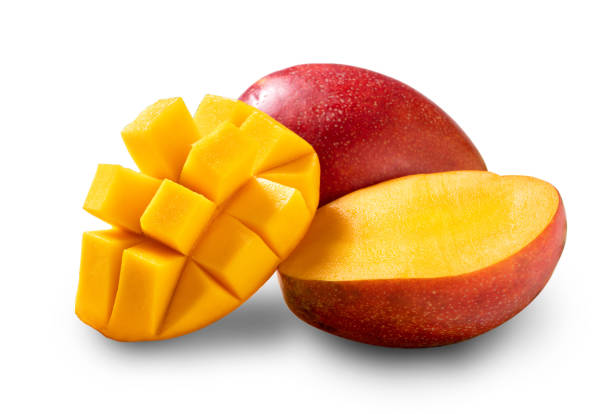Mango is a sweet and juicy tropical fruit that contains many health-boosting nutrients. A cup of raw mango provides vitamin C (66% of your daily value), folate, riboflavin and pantothenic acid as well as minerals like copper and calcium.
A variety of phytochemicals including astragalin, quercetin and -carotene are found in mango. These plant compounds have anti-inflammatory, antioxidant and immune system enhancing properties.
High in Vitamin C
Eating mangoes provides you with a good amount of vitamin C. The water-soluble vitamin aids immunity, iron absorption, and promotes cell growth. A cup of mango contains about two-thirds the amount of Vitamin C you need each day.
Mango is also a good source of vitamin A, which is important for eye health and skin. It also contributes to healthy bones, and it helps your body form blood vessels and tendons.
Vitamin A also reduces your risk of cancer and may help you sleep better. A 2009 study found that the carotenoids in mango can suppress fat cells. The same study also found that mangoes have a low glycemic index, meaning they don’t spike your blood sugar. Nevertheless, eat them in moderation.
High in Magnesium
Mangoes contain plenty of magnesium, a mineral that helps control blood pressure and strengthen muscles. They also have vitamin C, which improves iron absorption and supports immune function.
The antioxidants in mangoes help protect the eyes. The fruit contains zeaxanthin and lutein, which can lower your risk for macular degeneration.
The fiber in mangoes may reduce the risk of heart disease by helping to lower cholesterol levels. The magnesium and potassium in mangoes may also help with blood pressure control. The vitamin A and E in mangoes promote healthy skin and hair. They also contain glutamic acid, which stimulates brain activity and helps with memory. The phenolic acids in mangoes, such as gallic and syringic, may have anti-inflammatory properties. (21)
High in Potassium
Mangoes are a tropical treat that also pack a punch when it comes to nutrition. These luscious fruits are full of vitamins and minerals, making them great for your heart and immune system.
A mango’s soluble fiber helps keep blood sugar levels in check by slowing down digestion. This is especially important for people with diabetes, as it can help control how quickly sugar enters the body.
In addition, the potassium in mangoes can improve blood pressure by reducing the strain on your cardiovascular system. A one-cup serving of raw mango provides nearly half of your daily value for this mineral.
Dried or canned mangoes may contain sulfites, so look for options that are free of this preservative. In rare cases, eating mango can trigger a reaction in some people similar to poison ivy, causing tingling or burning on the lips, tongue and throat.
High in Fiber
One cup of sliced mango offers 7% of the recommended daily value for dietary fiber. This nutrient helps maintain bowel health by adding bulk to the stool, improving frequency and consistency.
Mango contains vitamin C, which aids the immune system and helps absorb iron and promotes cell growth. The fruit also provides folate and copper, important nutrients for pregnancy.
The orange flesh of the mango is rich in beta-carotene, which the body converts to vitamin A. This nutrient protects the eyes against the damaging effects of UV light and blue-light from electronic devices, such as computers, tablets and phones. In addition, it helps with memory, and the glutamic acid in mango encourages brain activity and concentration.
Low in Calories
Mangoes are an excellent source of vitamin C and contain the immune-boosting polyphenols. Studies suggest that a healthy immune system may help reduce the length and severity of colds, as well as other conditions like diarrhea and malaria.
One cup of mango contains only 165 calories and two-thirds of the recommended daily amount of vitamin C. Vitamin C helps your body absorb iron, protects you from oxidative stress and strengthens your immunity.
The orange flesh of a mango is rich in the carotenoids lutein and zeaxanthin. These are important for eye health, and research suggests they can help prevent macular degeneration and dry eyes. Mangoes also provide vitamin A, which is a key component for good vision. A study in rats found that the phenols in mangoes reduced inflammation and stopped cancerous cell growth.



